Eddie McGuire’s football hats: Magpie president, AFL powerbroker, Fox Footy commentator, radio and “Footy Show” host.
Is the Collingwood Football Club losing one of the biggest punching bags in Australian sport? Or will the game (and business) of Australian football be deprived a true statesman?
Eddie McGuire is tossing in another of his hats.
Gone from commercial breakfast radio in Melbourne, the 56-year-old self-made leader is to abdicate from the Collingwood Football Club presidency at the end of the year. A 23-season reign that significantly changed the Magpies – but added just one AFL premiership to the club’s trophy cabinet – will draw many varied reviews.
But for all that is said of “Eddie”, here is one question that can dramatically change the discussion on McGuire’s influence in Australian football: “Would you have voted for Ed to be your club’s president?”
Tantalising question, surely. On a personal note, what would McGuire have meant had he been an option at the Port Adelaide Football Club in 2012 when the South Australian club – like Collingwood at the start of McGuire’s rule in October 1998 – was on its knees, failing financially and struggling to transform its relevance from an old state-based competition to a new, expanding national league?
How would have Tasmania’s pitch for an AFL licence changed had McGuire led that state’s task force?
McGuire certainly would have delivered on commercial needs. The stories of how McGuire sealed for Collingwood significant sponsorship deals from major corporate leaders – who all went into meetings with hardcore locks on their wallets – is legendary. The man from Emirates airlines still marvels at McGuire’s sales pitch and his ability to deliver on every promise.
And imagine how the long-running (and tiresome) battle to allow Port Adelaide to wear its traditional black-and-white bars in the AFL would have played out had McGuire been arguing the case against Collingwood’s claims of exclusivity!
McGuire has been a fascinating, controversial and powerful personality during the AFL’s national expansion era. But where has the man of many hats – club leader, media personality and high-profile fan – made his greatest impact on the game?
During McGuire’s long tenure as Collingwood president there have been many brawls. Not all have been external, as noted with the departure of Collingwood premiership coach Michael Malthouse in 2011 and, more recently, the racism question posed by former player Heritier Lumumba.
Outside the Collingwood bubble, no public scrap was more widely-watched than the repetitive brawls with the Sydney Football Club, starting with his presidential colleague Richard Colless in 2002.
They argued (and McGuire won) on the validity of the cost-of-living allowance (COLA) handed by the AFL to Sydney and Greater Western Sydney in recognition of the greater costs on a player’s daily budget while residing in Australia’s biggest city.
McGuire ultimately questioned how much the inflated salary cap allowed Sydney to make successful millionaire plays for star recruits such as Kurt Tippett from Adelaide and Lance Franklin as a free agent at Hawthorn.
Colless raised the middle finger – and declared “up yours, Eddie” – in 2002 during an infamous (and still much-watched) interview on the ABC’s “Four Corners” current affairs flagship.
Almost 20 years later (and with the baton to stand up to McGuire eagerly taken by Colless’ successor as Sydney chairman, South Australian-raised Andrew Pridham) Colless speaks of McGuire with the rare blessing of having walked in his shoes as a club leader.
And this allows Colless to carry a different perspective on McGuire’s influence on Australian football – and culture. In a remarkable acknowledgement of how their relationship has changed, Colless had an extraordinary reaction to McGuire’s statement of resignation in December.
“I was sitting with Eddie’s good friend (and former AFL legal counsel) Jeff Browne,” says Colless. “For me, it was the moment that compares with: ‘Where were you when Kennedy was shot?’ I was quite shocked. I thought Eddie would stay at Collingwood for a fair bit longer.”
At his Sydney home, Colless surprises his dinner guests when he passes a wine carafe around the table. “Careful,” he says, “it is from the Collingwood Football Club.”
More to the point, it is from McGuire as a gift on Colless’ retirement as Sydney chairman in 2013. The inscription speaks of “friendship and fellowship”.
It seems a stark contrast from the public image that lingers from the Colless-McGuire stoushes that symbolise their philosophical battles in football.
“I never made a comment on Eddie as an individual; it always was in defence of my club,” says Colless. “And whenever I might have burnt a bridge with another club president or chairman, I have always tried to recover it.”
So when McGuire takes his final bow as Collingwood president at the end of the year, would Colless prefer to roast or tribute his grand rival?
“I’d take the piss out of him,” says Colless. “That is the Australian way. But I would also pay tribute. I do respect Eddie for what he has achieved.”
Colless admires McGuire’s longevity as Collingwood president – and doubts anyone will match McGuire’s 23-season tenure while AFL clubs are challenged to change for the sake of “corporate governance”.
“It is an unrelenting job being a club president or chairman; you have no shoulder to cry on … everyone leans on you,” Colless said.
“Eddie will finish having overseen Collingwood in 535 games. Yes, Harry Curtis has the record at Collingwood and across the league for tenure – 27 seasons (1924-1950) as president and 515 games. But Eddie with his 535 games will have a record I can’t see being surpassed, more so when club boards are facing more pressure for diversity and change for corporate governance.
“You don’t last for that long in this environment unless you are pretty bloody good.”
Colless also acknowledges McGuire’s commitment – and passion.
“Eddie has that in abundance,” says Colless who is opposed to Hawthorn leader Jeff Kennett’s push for term limits on club presidencies. “Some might say it is a negative (when it blinds McGuire to the Collingwood agenda). But if you don’t have it, you can’t do this job.”

Eddie McGuire is all smiles after announcing the re-signing of Nathan Buckley as Collingwood coach in 2017. Photo: AFL MEDIA
Colless first met McGuire in San Diego in 1998 – while both men were at the American football Super Bowl – to learn McGuire was chewing far more than the steak they had ordered at dinner.
“Eddie was looking at the Collingwood presidency,” recalls Colless, who eagerly encouraged McGuire to step up to the role.
“He had a genuine vision. He had profile. He was the perfect person for the role, if he had the time. He did have a great vision. He wanted to create Australia’s version of the great international sporting clubs that have many teams – like Barcelona. Collingwood is the closest we have to that – AFL, AFLW and netball; a whole range of teams under the Collingwood banner.”
And so began a 23-season story of McGuire becoming “Eddie Everywhere”.
McGuire’s hat stand is not as busy today.
“His sheer energy … I don’t know why he does so much,” says Colless. “He has had the capacity to take on so many activities. He has been an active AFL club president – and given his time in other environments, it has been extraordinary.”
McGuire still will have his television platform at Fox Footy. Has anyone else noticed how McGuire appears to channel the voice mannerisms of the late Mike Williamson, the pioneer football commentator (radio and HSV7 from the 1950s-1970s) who has his sound print on so many famous Collingwood moments that were part of McGuire’s youth as a Magpies fan at Broadmeadows?
From 2022, McGuire can take to the microphone without being challenged on “conflict of interest” as he has endured (for good reason) since 1999. He will be influential in an opinion-loaded landscape where his experience carries power.
He will have his national (non-football) profile with a television quiz show, “Who Wants To Be A Millionaire”, that regains a primetime slot this month, and any special event the Nine Network opts to produce.
The “Footy Show” is gone. Many will argue it was doomed as soon as McGuire left the once big-rating, Logie Award-winning Thursday night show the first time in 2005 after 11 years in the hosts chair.
Reality might dictate the show’s format was challenged, along with many traditional television programs such as the once big-rating evening news, when the world found its digital age.
Ask Colless where McGuire made his best mark in Australian football and the first thought is with the “Footy Show” that began in 1994.
“At the time, the ‘Footy Show’ was a breath of fresh air that delivered a different concept,” Colless said. “The show had many stars, but Eddie was the anchor. He became – with ‘Who Wants To Be A Millionaire’ – the biggest star in Australia. That profile is powerful for the game … and his club.
PLEASE HELP US CONTINUE TO THRIVE BY BECOMING AN OFFICIAL FOOTYOLOGY PATRON. JUST CLICK THIS LINK.
“Contrary to the view that persists today, Eddie was publicly very supportive of me and the club when he sat in the host’s chair on the ‘Footy Show’. I was then – and I remain now – grateful for Eddie’s support.”
McGuire – or the show’s producers – did use their “Footy Show” stage to promote campaigns and sponsorship deals at every AFL club, giving McGuire the image of doing good work for far more than just his Collingwood.
Colless certainly remembers this aspect of McGuire when he reflects on how the legacy of Sydney’s 2000 Olympic stadium at Homebush was being pushed towards football codes (rugby and soccer) that played on rectangular fields.
“I thought, why can’t Australian football be part of that legacy – and we needed a blockbuster AFL event for that,” Colless said. “We went to Eddie to make it a Sydney-Collingwood event. He would come to Sydney late in the week to promote a game that was an all-Sydney gate. We’d finish commanding the back pages of the Sydney papers after we locked horns in a promotional event. And then Eddie would fly back to Melbourne to be back for the game two days later.
“This was all about the AFL in Sydney and the game of Australian football. Eddie gave us his time. We secured that Homebush opportunity as a very good one for the AFL.”
So what is next for those empty hooks on the most-famous hat stand in Australian football?
Does McGuire turn to politics? Or does he continue with the politics of football, in particular with the AFL Commission? There is that so-called “irony” with McGuire, after seeming more powerful than the commission on many fronts while serving as Collingwood president, sitting on the game’s panel of guardians plotting the future with much more than the Collingwood Football Club at the centre of every thought.
Perception or reality on the power of Eddie?
“I can’t tell you how much (of McGuire’s perceived power against the AFL Commission) is real,” says Colless.
“But when you have an AFL writer (Ashley Browne) put together an annual list of the 50 most powerful people in the game to be published on an AFL platform and the Collingwood president is at No.2 and the AFL Commission chairman (Richard Goyder) is at No.3, what more do you need as a statement on Eddie’s power and influence.
“In the history of the game, the VFL was repeatedly subject to the power and influence of some (club-based) individuals. But for the past 35 years, we have had an independent AFL Commission … and still one club president appears capable of having more influence on decisions that the game’s appointed leaders.
“I have not always agreed with everything Eddie has pushed,” adds Colless, returning to the so-called “Cola wars” with McGuire. “Does he have too much power and influence? And is it Eddie’s fault? I would have done the same as Eddie if I could have. The real question is about the independence of the commission – and how fearless are the commissioners?”
What becomes of Collingwood without McGuire?
An external expert – a well-credentialled gentleman who repeatedly has been asked to lead independent reviews of governance and the inner workings of club management systems – told Footyology that McGuire is leaving a board with many directors capable of filling big shoes at Collingwood.
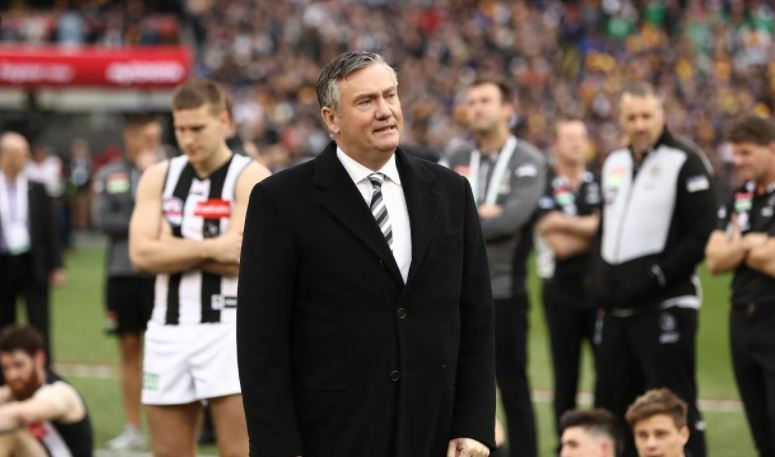
A dejected Eddie McGuire paces the MCG turf after the Pies’ heartbreaking loss to West Coast in the 2018 grand final. Photo: AFL MEDIA
This is a tribute to a man who did not become paranoid about would-be successors. Premiership player and leading player agent Craig Kelly might disagree, but he never formally challenged McGuire for the Collingwood presidency.
Without McGuire in command at Collingwood, is it that simple to think senior coach Nathan Buckley suddenly becomes more vulnerable to the win-loss test that determines the future of so many other AFL coaches?
No McGuire leaves the conclusion it is more likely there will be no Buckley unless there is significant and sustained success at a club that once again has failed to win a flag while under the watch of a favourite son.
The strength of McGuire’s legacy at Collingwood is how far he has advanced a football club that was “broke, dead last” and being pulled in many directions by differing forces inside and outside the messy Magpies nest at the end of the 1990s.
McGuire has taken Collingwood from suburban Victoria Park to the commercial colosseum at the MCG and the nearby training centre built around the remnants of the 1956 Olympic swimming complex.
Collingwood once dressed to the off-the-peg designs of Hard Yakka but under McGuire’s watch parades to the tailored silk of Gucci.
And where a Collingwood fan once threw the black-and-white scarf out of the window of a Holden, the MCG car park on game day has the shiny badges of Lexus emphasising how the Magpies can now match the Carlton blue bloods on Collins Street.
It is the new-age Collingwood Football Club for a national agenda – more so after the Magpies fell behind while Kevin Sheedy in the late 1980s and 1990s craftily built Essendon as “Australia’s team”. McGuire has advanced the Magpies beyond just inner-suburban battles in Melbourne.
“Eddie has changed Collingwood,” says Colless. “He is not short of his critics, particularly for some of his comments (in particular the remarks during Sydney champion Adam Goodes’ battle against racism).
“But you have to acknowledge he also has given Collingwood a major social agenda, such as helping the homeless. You cannot do that unless you are doing things right to be a financially sound and successful football club. That is the benefit of Eddie’s vision.”
Much will be said of McGuire when he leaves the Colingwood presidency. Not all of it will be kind. He would only need to visit Adelaide Oval during a Port Adelaide game to know how bitter the criticism can be. There are not many civil greetings at many non-Victorian venues.
But, in the main, McGuire has never retreated from public scrutiny. He has built his reputation on answering every call and message sent to him. He certainly appeared a statesman for the game at the start of the COVID crisis when the AFL called him to its so-called “war cabinet”.
One former AFL club president (preferring to remain anonymous) does sum up the complex question of what did Eddie, the man wearing the hat as Collingwood president, do across 23 seasons.
“Unless you’ve been the chairman or president of an AFL club, you have no grasp of the demands of the role,” he says. “You’re on permanent standby; you feel you have the weight of expectations of say a million supporters on your shoulders and at the same time you have personal business and family issues to manage like everyone else.
“So, I can’t speak for any other president, but I feel for every one of them when they’re under siege or pure bad luck denies them a premiership. Basically, it is ‘there but for the grace of God go I’. So I felt for Eddie in 2018 during the grand final loss to West Coast.”
Even Colless found a soft spot for McGuire during the final moments of the 2018 grand final – and revealed as much in a text message to his former sparring partner in football’s off-field battles.
“With two to three minutes to go in that grand final, Eddie had a premiership … and then Dom Sheed threads a football through the eye of the needle,” said Colless. “Yeah, I felt for him.”
McGuire has not only worn many hats, but filled many shoes in one of the most powerful tenures as an AFL club president. Did he do “good for the game” – more good than bad? Or did the overwhelming shadow he cast on the AFL, in particular the executive and the commission, put too much focus on his causes rather than those of greater benefit to the game?
“Eddie is a genuine football person,” says Colless. “I have warmed to Eddie for his passion towards the game as a whole. He is not there for reasons of money or personal advancement. Yes, he can drive you mad when he goes on about Collingwood. But you cannot deny his passion also extends to the broader needs of the game.”
Anyway, ask yourself: Would have you voted for Edward Joseph McGuire as president of your football club?

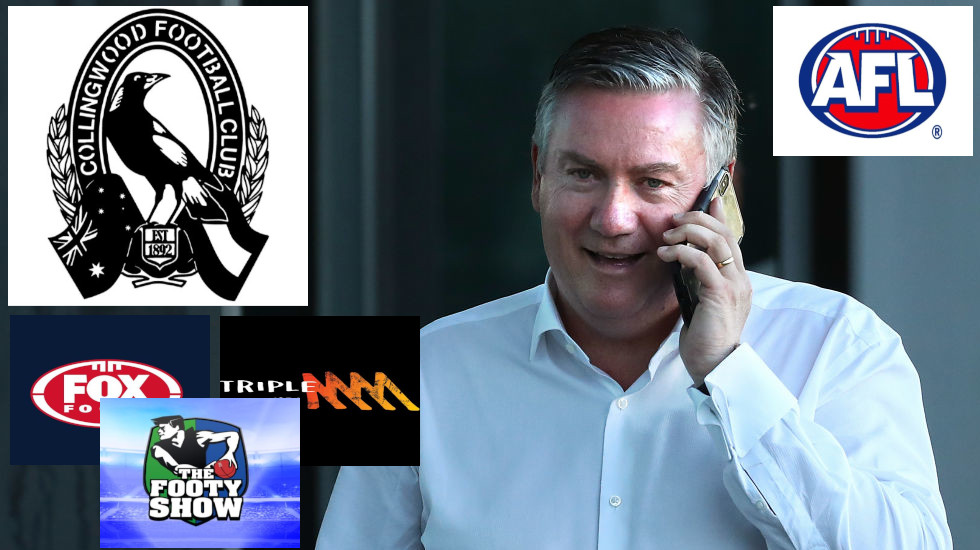

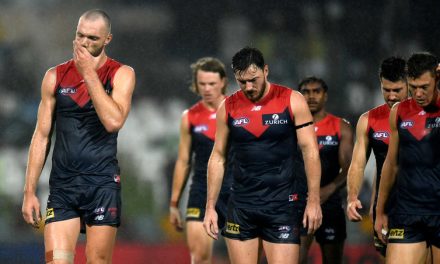
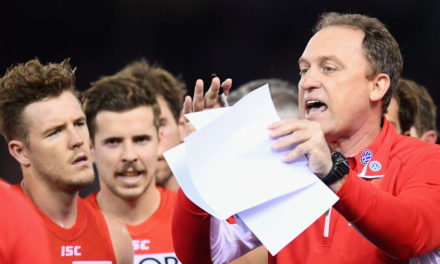

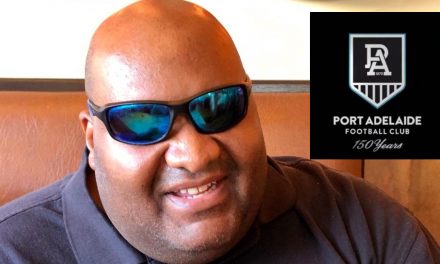




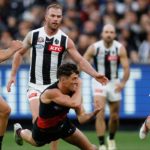

Eddie perfectly bridged the past with the present/future. He appeared to have Bob Rose’s blessing, As a Carlton supporter, he would have been in the Pratt’s shadow.